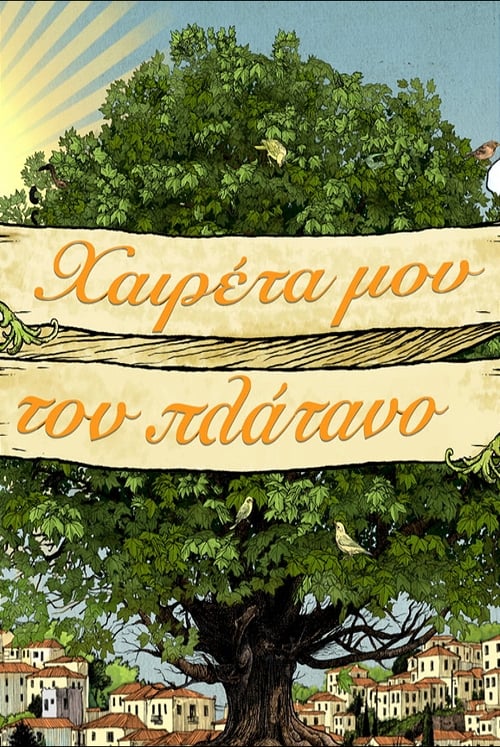
Ask Your Own Question
What is the plot?
In the opening scene of "Κουνέλι Στιφάδο," the camera pans over a bustling kitchen where Mama is preparing for a family gathering. The aroma of spices fills the air as she meticulously chops vegetables, her hands moving with practiced ease. Her excitement is palpable as she talks to her daughter, Eleni, about the traditional rabbit stew she plans to make, a dish that holds sentimental value for the family. Eleni, however, is distracted, scrolling through her phone, revealing her preoccupation with a recent breakup.
As the scene shifts, we see Eleni's brother, Nikos, entering the kitchen with a mischievous grin. He teases Eleni about her love life, prompting a light-hearted banter between the siblings. Mama, overhearing their exchange, chimes in with her own humorous anecdotes about love and relationships, trying to lighten the mood. The warmth of the family dynamic is evident, but Eleni's internal struggle with her emotions begins to surface.
The next sequence takes place at the local market, where Mama and Eleni go to gather ingredients for the stew. As they navigate through the stalls, Mama shares stories of her youth, emphasizing the importance of family traditions. Eleni, still preoccupied, expresses her frustration about her recent breakup, leading to a heartfelt conversation about love and resilience. Mama reassures her, emphasizing that every ending is a new beginning. This moment deepens their bond, showcasing Mama's nurturing nature.
Back at home, the family gathers around the dining table, where Mama serves the rabbit stew. The atmosphere is filled with laughter and chatter as they share stories from their week. However, the mood shifts when Nikos brings up a sensitive topic regarding their father, who has been absent for years. Eleni's discomfort is evident, and she quickly changes the subject, but the tension lingers in the air. Mama, sensing the unease, tries to steer the conversation back to lighter topics, but the unresolved feelings about their father create an undercurrent of tension.
Later that evening, Eleni retreats to her room, feeling overwhelmed by the day's events. She reflects on her relationship with her father and the impact of his absence on her life. In a moment of vulnerability, she picks up her phone and texts her ex, contemplating whether to reach out or move on. This internal conflict highlights her struggle between wanting closure and the fear of reopening old wounds.
The following day, Mama decides to host a family dinner to bring everyone together and mend the rift caused by the previous night's conversation. She meticulously prepares the meal, pouring her heart into every dish. As she cooks, she reminisces about the importance of family unity, determined to create a warm and inviting atmosphere. Eleni, still grappling with her emotions, helps her mother in the kitchen, and they share a tender moment as Mama encourages her to embrace her feelings.
As the dinner unfolds, the family members arrive, and the atmosphere is initially tense. However, Mama's warmth and the delicious food gradually ease the tension. During the meal, Nikos attempts to lighten the mood with jokes, and Mama shares stories from their childhood, reminding everyone of the love that binds them. Eleni, feeling the support of her family, begins to open up about her feelings regarding their father, leading to a heartfelt discussion about forgiveness and moving forward.
In a pivotal moment, Eleni decides to confront her feelings about her father. She expresses her pain and disappointment, and Mama listens intently, offering her support. This emotional exchange allows Eleni to release some of the burden she has been carrying, and the family rallies around her, reinforcing their bond. The scene is filled with tears and laughter, showcasing the complexity of their relationships.
As the evening comes to a close, the family gathers for a group photo, capturing the moment of unity and love. Eleni, feeling a sense of relief and acceptance, smiles genuinely for the first time in the episode. The camera lingers on the family, highlighting the importance of togetherness and the healing power of love.
The episode concludes with Mama reflecting on the day as she cleans up the kitchen. She feels a sense of fulfillment, knowing that she has helped her family navigate their emotions and strengthen their bonds. The final shot shows Eleni looking at the family photo, a newfound sense of hope in her eyes as she contemplates her future, ready to embrace new beginnings.
What is the ending?
In the ending of "Mama's Cake," season 2, episode 18 titled "Κουνέλι Στιφάδο," the family comes together to resolve their conflicts over a traditional meal. The episode concludes with a sense of unity and understanding among the characters, as they share their feelings and experiences, ultimately strengthening their bonds.
As the episode unfolds, the scene opens in the family kitchen, where the aroma of the rabbit stew fills the air. Mama is bustling about, preparing the dish with care, her hands moving deftly as she chops vegetables and stirs the pot. The camera captures her focused expression, revealing her determination to create a meal that symbolizes love and togetherness.
Cut to the living room, where the family members are gathered, each absorbed in their own thoughts. Tensions are palpable; the recent disagreements have left a rift among them. The eldest son, Alex, sits on the couch, his brow furrowed in contemplation. He feels the weight of responsibility for the family's well-being, yet struggles with his own desires and ambitions. His sister, Eleni, paces nearby, her frustration evident as she grapples with feeling unheard and undervalued.
As the stew simmers, Mama calls everyone to the table. The family hesitates, but the inviting scent draws them in. They take their seats, and the atmosphere is thick with unspoken words. Mama serves the rabbit stew, her hands shaking slightly as she places the bowls in front of each family member. The act of sharing the meal becomes a pivotal moment, a chance for healing.
With the first bites, the tension begins to dissolve. Alex breaks the silence, expressing his appreciation for Mama's cooking and the effort she puts into keeping the family together. Eleni, moved by her brother's words, shares her own feelings of isolation and the need for support. The conversation flows, and one by one, the family members open up about their struggles, fears, and dreams.
As they talk, the camera captures their expressions--relief, understanding, and love. The stew, once a mere dish, transforms into a symbol of their shared history and the bonds that tie them together. Laughter begins to replace the earlier tension, and the family finds joy in each other's company once more.
The episode concludes with a final shot of the family, now united, sitting around the table, their plates nearly empty. Mama looks at her children with pride, her heart swelling with love. The camera slowly zooms out, capturing the warmth of the moment, as the screen fades to black, leaving the audience with a sense of hope and renewal.
In this ending, each character finds a resolution to their internal conflicts. Alex learns the importance of communication and vulnerability, while Eleni feels validated and supported. Mama, as the heart of the family, reinforces her role as a nurturer, bringing everyone together through the simple act of sharing a meal. The episode closes on a note of unity, emphasizing the strength of family ties and the power of understanding.
Is there a post-credit scene?
In the episode "Κουνέλι Στιφάδο" from season 2 of Mama's Cake, there is indeed a post-credit scene that adds a humorous twist to the episode's events.
As the credits roll, the scene opens in the kitchen of Mama's bakery, where the aroma of the rabbit stew still lingers in the air. Mama is seen cleaning up after the day's chaos, her apron dusted with flour and bits of herbs. She hums a cheerful tune, clearly in a good mood despite the earlier mishaps with the stew.
Suddenly, the door swings open, and in walks her mischievous grandson, Alex, holding a large, fluffy rabbit. His eyes sparkle with mischief as he announces, "Look what I found, Mama!" The rabbit, oblivious to the commotion, hops around the kitchen, causing Mama to gasp in surprise.
Mama's expression shifts from shock to a mix of amusement and exasperation. "Alex! You can't just bring a rabbit into the kitchen! What if it gets into the stew?" she exclaims, half-laughing, half-scolding.
Alex, with a cheeky grin, replies, "Don't worry, Mama! This one is for cuddling, not cooking!" He gently pets the rabbit, which seems to enjoy the attention.
The scene ends with Mama shaking her head, a smile breaking through her stern demeanor. "Alright, but it better not end up in my pot!" she warns playfully, as the camera zooms out, capturing the warmth and chaos of family life in the bakery.
This light-hearted moment encapsulates the show's themes of family, love, and the occasional culinary disaster, leaving viewers with a sense of joy and laughter as the episode concludes.
How does the episode explore the theme of nostalgia through the characters' interactions?
The episode explores nostalgia through the characters' interactions as they reminisce about past family meals and the stories associated with them. As they cook together, they share anecdotes that reveal their emotional ties to the dish, creating a sense of longing for simpler times and reinforcing the bonds of family.
How does the character of Eleni evolve in this episode?
Eleni experiences a significant transformation in this episode as she grapples with her insecurities about her cooking skills. Initially, she feels overshadowed by her family's expectations, but as she participates in the preparation of the rabbit stew, she gains confidence and asserts her own culinary identity.
What is the significance of the rabbit stew in the episode?
In 'Κουνέλι Στιφάδο', the rabbit stew serves as a central symbol of family tradition and the importance of culinary heritage. The characters gather around the preparation of the dish, which evokes memories of past family gatherings and highlights the emotional connections tied to food.
What conflict arises between the characters during the cooking process?
During the cooking process, a conflict arises between Eleni and her mother, who has traditional views on how the rabbit stew should be made. This disagreement escalates as Eleni tries to introduce her own modern twist to the recipe, leading to a heartfelt confrontation about generational differences and the struggle for acceptance.
What role does the character of Dimitris play in this episode?
Dimitris acts as a mediator in the tensions between Eleni and her mother. He encourages Eleni to express her creativity while also reminding her of the importance of family traditions. His supportive nature helps to bridge the gap between the two women, ultimately leading to a resolution.
Is this family friendly?
In "Mama's Cake," season 2, episode 18 titled "Κουνέλι Στιφάδο," the episode maintains a generally family-friendly tone, but there are a few elements that might be considered objectionable or upsetting for children or sensitive viewers.
-
Cooking Scenes: The episode features scenes involving the preparation of rabbit stew, which may include graphic depictions of butchering or cooking animals. This could be distressing for younger viewers or those sensitive to animal welfare.
-
Family Conflicts: There are moments of tension and conflict among family members that may evoke strong emotions. These scenes could be intense for children, as they deal with misunderstandings and hurt feelings.
-
Emotional Vulnerability: Characters experience moments of vulnerability and sadness, which may resonate deeply with sensitive viewers. The portrayal of these emotions could be heavy for some.
-
Cultural References: The episode includes cultural elements and humor that may not be fully understood by younger audiences, potentially leading to confusion.
Overall, while the episode is designed to be entertaining and heartwarming, these aspects may require parental guidance for younger viewers.





































